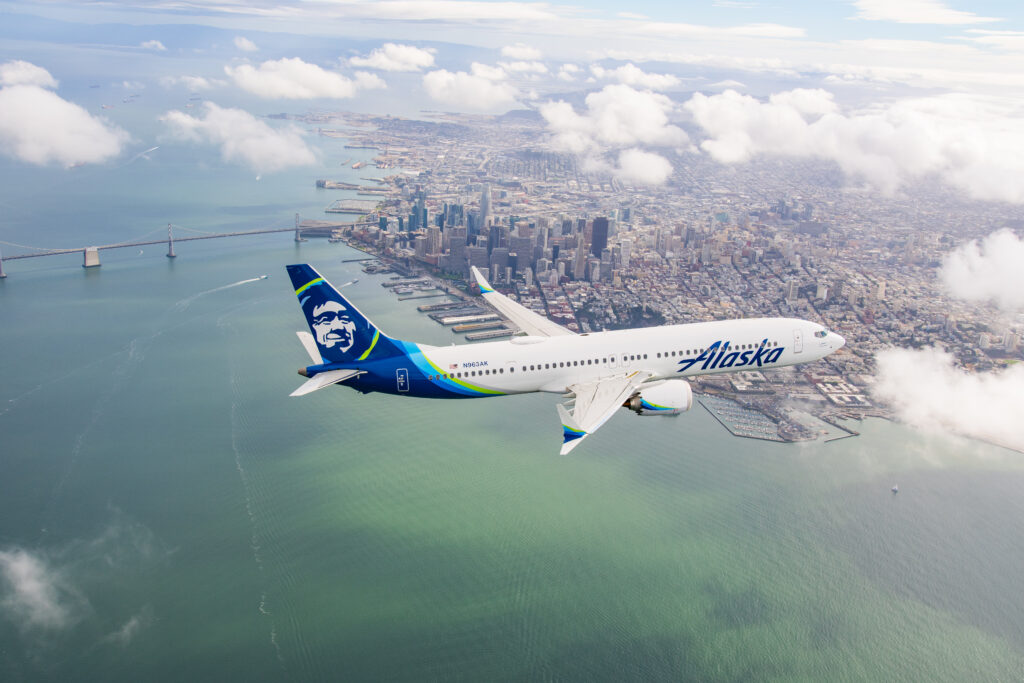
Skift Take
Despite taking a hit from the Max 9 grounding, Alaska Airlines saw an uptick in travel demand, fueled by a full return of business travel.
Even as the grounding of the Max 9 prompted Alaska Airlines to cancel thousands of flights in January, the carrier came out relatively unscathed in the first quarter. And that’s partly because its business travel fully recovered to 2019 levels.
Alaska reported a net loss, but without the grounding, it would have eked out a small profit of $5 million.
The first three months of the year are typically difficult for airlines. Leisure travel is down, and post-pandemic, business travel has been at a standstill. But that now seems to be changing.
Andrew Harrison, Alaska’s chief commercial officer, said business revenues grew 22% in the first quarter. Tech companies fueled the gains.
Harrison said revenues from tech companies were up 50% compared to the same time last year, the biggest improvement for the carrier. Revenue from professional services industries was up 20%.
“These results were achieved despite the grounding and book away we experienced,” Harrison said during a call with analysts on Thursday. “Today, managed corporate revenue has fully recovered to 2019 levels, while tech is approximately 85% recovered.”
Harrison said Alaska anticipates the surge in business travel will stay constant into the second-quarter.
A High Appetite for Premium
Similar to bigger carriers like American, Delta and United, Alaska has also been riding on high demand for premium seats.
Harrison said first- and premium-class revenues were up 4% and 11%, respectively. He added that without the grounding, the premium revenues would have been higher.
“As we continue to refine our premium strategy across our products and markets, we have further upside to come and remain committed to building on our premium guest experience, offering the products our guests and loyalty members want,” Harrison said.
As the summer travel season approaches, the carrier is also seeing “encouraging bookings” in the second quarter, with Harrison saying Alaska expects to see some of its most profitable growth during that time.
Alaska Rethinks Fleet Plans Amid Boeing Delivery Delays
Despite a generally rosy outlook, Alaska executives said Boeing delivery delays are impacting the carrier’s capacity plans.
Harrison said Alaska was slightly increasing the utilization rates of its older mainline aircraft, pushing back the retirement of some of those planes. The carrier also increased capacity on its regional subsidiary Horizon Air and SkyWest to make up for the delays.
Alaska, which primarily maintains a fleet of 737 aircraft, received $162 million in cash compensation for the Max 9 grounding, which lasted for nearly one month. Alaska CEO Ben Minicucci previously said the grounding cost Alaska $150 million.
Minicucci said during the call the carrier has increased its in-person oversight on the 737 production line and is in regular talks with Boeing leadership about quality and delivering planes on schedule.
“Alaska needs Boeing,” Minicucci said. “Our industry needs Boeing, and our country needs Boeing to be a leader in airplane manufacturing.”
